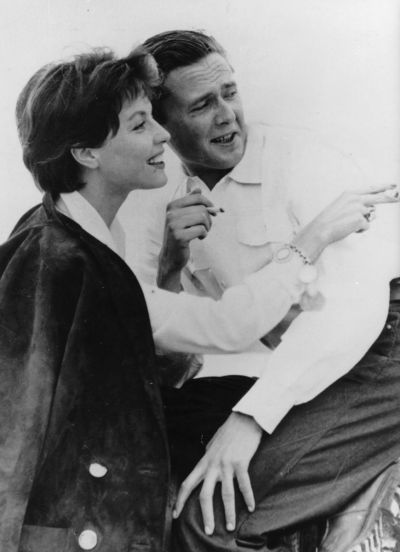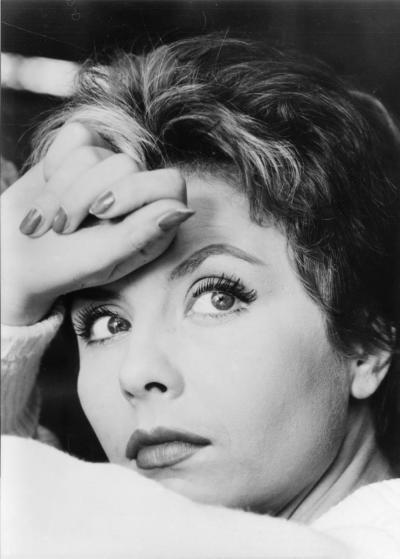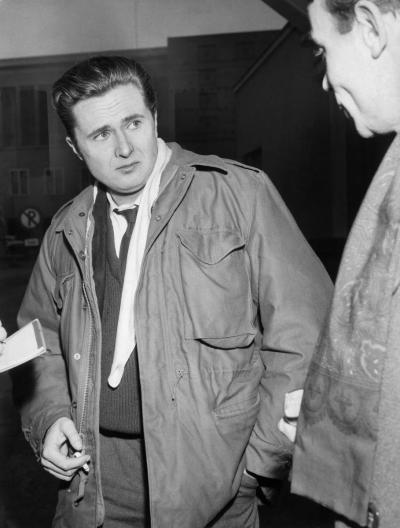Sonja Ziemann and Marek Hłasko

His short story “The Eighth Day of the Week” was published by Kiepenheuer and Witsch in Cologne on 1st December 1958. In January 1959 Hłasko flew to Israel. A few months later Sonja Ziemann visited him in Tel Aviv. They wanted to marry but since Israel had no official wedding ceremony for Christians they married symbolically. Sonja Ziemann was in great demand as an actress. She worked round the clock and around the world. Marek Hłasko’s stories were also translated and published in Denmark, Holland, Finland, Spain, Germany and the USA. At the start of February 1961 Hłasko visited the set of a film being made by Sonja Ziemann in London: here they married on 20th February 1961. Officially they lived together in West Berlin in a villa belonging to her parents. Hłasko had his own workroom there but he continually fled into another world because of his excessive alcohol consumption. This did no harm to his popularity. In 1963 Kiepenhauer and Witsch published “Dirty Deeds”. In 1964 the Paris Instytut Literacki published “Everyone turned their Backs” (Wszyscy byli odwróceni). Marek Hłasko was now living alone in Switzerland, where he worked with the magazine “Weltwoche“. In 1965 Marek and Sonja spent a holiday together in Italy. Hłasko then demanded a divorce. After a short stop in Paris he flew to Hollywood in 1966 to meet a film producer. The meeting was arranged for him by Roman Polański. The differences of opinion between the writer and the producer made any further work on the film impossible. Nonetheless Marek Hłasko remained in California. His lifestyle was dissolute. In 1969 Sonja Ziemann and Marek Hłasko divorced. In the same year Hłasko flew to Tel Aviv once more. The German television channel, ZDF, was shooting a film based on his story “Everyone turned their Backs” (Wszyscy byli odwróceni) with Sonja Ziemann in the main role. In June 1969 he travelled to Wiesbaden to meet the ZDF editor, Hans Jürgen Bobermin, and sign another contract with ZDF. In the night of the 13th to 14th June 1969 Marek Hłasko died from an overdose of sleeping tablets in Bobermin’s house in Wiesbaden. He was 35 years old. His friends were convinced that his death could never have been suicide. No farewell letter could be found: on the other hand there were flight tickets to Israel and sketches for a new scenario.
Like Marek Hłasko himself, his literary characters were romantic rebels. To Hłasko’s generation they symbolised the disappointment and protest against the reality of communist life in Poland during the 1950s. Marek Hłasko had a sharp tongue and was able to describe precisely the atmosphere in the depths of society where hopelessness and cynicism reigned. His protagonists dreamt of change but these dreams were never fulfilled.
Sonja Ziemann was a successful film actress until the early 1990s. Today she lives in Munich.


